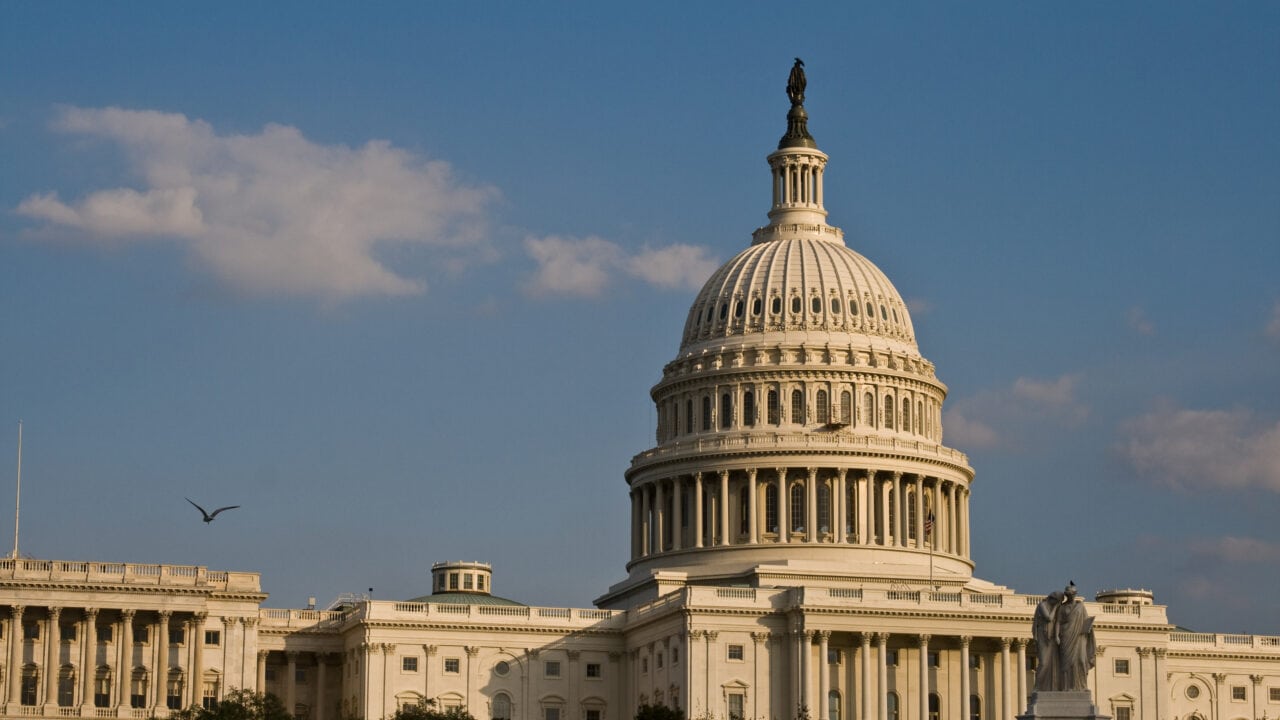 "Capitol Building" by Andrew Malone is licensed under CC BY 2.0. https://flic.kr/p/47FSqx
"Capitol Building" by Andrew Malone is licensed under CC BY 2.0. https://flic.kr/p/47FSqx
In a recent op-ed in The Hill, the Committee for a Responsible Federal Budget (CRFB) endorsed H.R. 5779, the Fiscal Commission Act (FCA) of 2023. This bill would establish a Fiscal Commission tasked with making recommendations and writing legislative language to “improve the long-term fiscal condition of the federal government.”
This endorsement of the fiscal commission from CRFB – an organization which endorsed Biden’s Inflation Reduction Act, opposed the 2017 Trump Tax Cuts, and sided against multiple efforts to repeal Obamacare – is the latest evidence that the commission will further efforts to increase taxes and undermine conservative policy goals.
As a coalition of conservative organizations outlined in a letter last week, the “bipartisan fiscal commission” is a “tax trap designed to get Republican fingerprints on a tax increase in exchange for ‘spending cuts’ that never materialize.” Not only does this bill ignore Democrats’ unbreakable dedication to raising taxes and spending, but it also ignores the decades-long history of similar commissions and bipartisan deals which all result in the same outcome: tax hikes with no meaningful spending cuts.
The CRFB is an organization that has attempted to position themselves as a right-of-center group, but has historically been supportive of steep tax hikes, reckless spending initiatives, and willing to overlook policy that adds to the debt if that legislation is pushed by Democrats.
The CRFB, in July 2022, endorsed the Inflation Reduction Act (IRA). The IRA imposed steep tax hikes on natural gas, crude oil, coal, 401(k)s/pension plans via stock tax, passthrough businesses, and included a $225 billion corporate alternative minimum tax. The bill also passed numerous green energy subsidies and imposed price controls on prescription drugs. Their support is particularly ironic, as the IRA ended up adding to the deficit rather than reducing it. Not a single Republican in Congress voted for the IRA.
Further, the CRFB was opposed to the Tax Cuts and Jobs Act of 2017, a shining achievement of the Trump Administration. In October 2017, they said the following:
“President Trump’s proposed tax cut would not be the largest tax cut in history, nor should it be. In light of rising debt and deficits, lawmakers should pursue at least revenue-neutral tax reform to grow the economy, not expensive tax cuts that do not pay for themselves.”
ATR President Grover Norquist has already warned that the Fiscal Commission is a stab in the back to President Trump, as the commission will, first, put TCJA tax cuts on the chopping block during these talks.
In 2016, the CRFB also criticized President Trump’s plan to repeal and replace Obamacare and, later, criticized all blanket plans to eliminate the ACA.
In short, the CRFB’s support of the Fiscal Commission gives the game away. They, admittedly, see the commission as a way to push through their “fiscally responsible” policies. And those policies, evidently, are tax hikes on the American people and protecting left-wing priorities.
In the aforementioned op-ed, the organization praises the bill for leaving “all options on the table,” including tax hikes:
“The legislative language and public statements by bill supporters during congressional hearings make clear that all options would be on the table for the commission to consider, including additional tax revenues.”
The CRFB also notes “skeptics” who cite the failure of other debt commissions and counters by praising the Greenspan Commission and the Simpson-Bowles Commission:
“Skeptics say a commission is unlikely to succeed given the failure of other budget commissions in the past. But this neglects the history of other examples that helped pave the way for progress, such as the Greenspan Commission, in extending the life of Social Security in the 1980s. And even commissions that didn’t achieve consensus, such as Simpson-Bowles, helped raise awareness of our fiscal challenges and did important work in vetting policy options that became part of the legislative debate in the years following.”
ATR’s position throughout this debate has been that a commission would inevitably introduce tax hike proposals, putting the conservative movement on defense against these disastrous proposals and undermining the GOP’s reputation for being the party of low taxes.
In this way, it is particularly affirming that the Greenspan Commission and the Simpson-Bowles Commission are used as “good” examples, as both recommended tax hikes.
The Social Security Reform Act of 1983, the result of the Greenspan Commission, expedited Social Security tax hikes, increased tax rates on self-employment income, and included up to one-half of Social Security benefits as taxable income for certain taxpayers.
In 2010, the Simpson-Bowles commission proposed a net tax hike of $1.133 trillion which sought to raise the federal tax burden permanently to 21 percent of GDP, up from the half-century average of 18 percent of GDP.
In 2012, the Simpson-Bowles budget would have raised taxes over the next decade by $2 trillion, and was riddled with phony spending cut gimmicks and double-counting. It was voted down in the House after united conservative movement opposition from Americans for Tax Reform and groups like Americans for Prosperity, Heritage Foundation, Club for Growth, and National Taxpayers Union.
The CRFB, and groups like it, claim that an “everything on the table” approach is necessary to address rising debts. To be clear, the deficit is a real problem. In recent years, it has driven historic levels of inflation, causing financial pain for millions of Americans. The problem, however, is not and never has been revenue. The problem is spending.
It is rising spending, not falling tax revenues, that drives the long-term deficit. Tax revenue has held a steady share of the economy for over 60 years, even after the implementation of significant tax cuts in the Tax Cuts and Jobs Act of 2017.
Given this reality, a commission designed to be serious about “improving the long-term fiscal condition of the federal government,” would focus solely on spending – not economy-depressing tax hikes.

